The Forum on AI-empowered Industrial Transformation and Launching Ceremony of Taizhou Artificial Intelligence Society were held at TU on April 11–12. Co-organized by the Chinese Association for Artificial Intelligence (CAAI), Taizhou Association for Science and Technology, and TU, and hosted by TU’s School of Electronics and Information Engineering, the events gathered over 200 attendees, including global AI experts, government officials, and industry leaders.
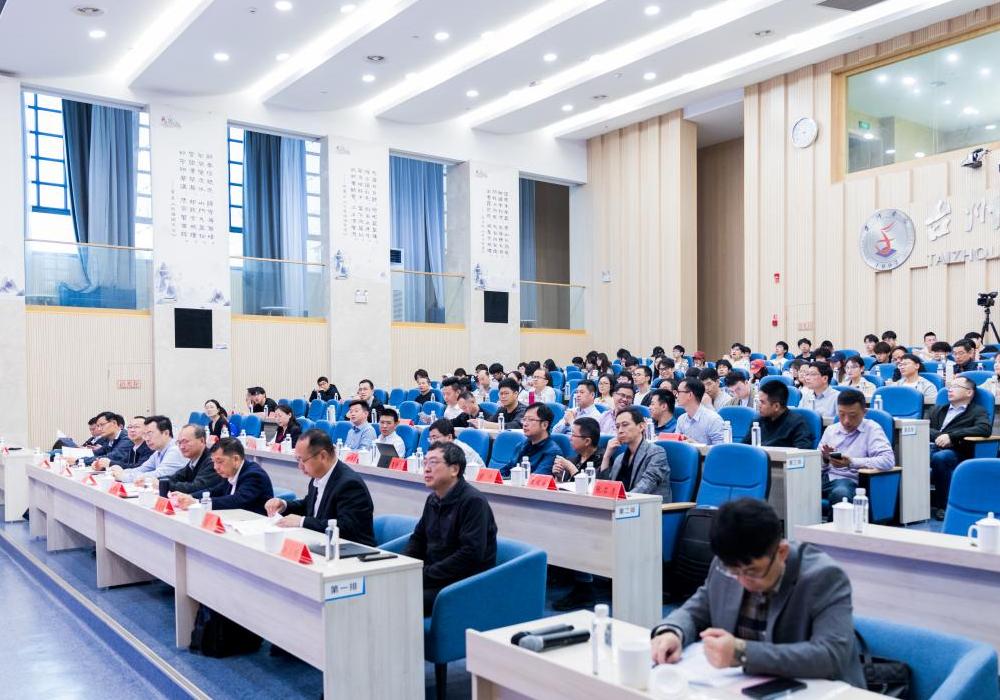
Forum on AI-empowered Industrial Transformation and Launching Ceremony
On April 11, the launching ceremony was held at the university’s International Conference Hall. Li Xiaobing, Director of Taizhou Civil Affairs Bureau, issued the Official Approval for Social Organization Establishment. Yu Hongbiao, Vice Chairperson of the Taizhou Association for Science and Technology, emphasized the society’s role as a “think tank, accelerator, and bridge” to advance Taizhou’s digital economy and industrial transformation.
The “Constitution of the Taizhou Artificial Intelligence Society” and the “Financial Management Measures and Membership Dues Collection Standards” were reviewed and approved at the ceremony. Members of the first council were elected. Zhang Shiqing, Dean of the School of Electronics and Information Engineering of TU, was elected as the first President of the society and delivered a statement.
The Forum on AI-Empowered Industrial Transformation opened on the morning of April 12th, with Zhang Shiqing presiding over the forum. Chen Youzeng, Deputy Secretary-General of the Taizhou Municipal Government, and Han Deman, Vice President of TU, attended the forum and delivered speeches.
Chen Youzeng stated that the establishment of the Taizhou Artificial Intelligence Society is not only a significant event in the local AI field but also an important milestone in promoting Taizhou’s scientific and technological innovation and industrial upgrading. He hoped that the society could fully leverage its role as a bridge and link, accelerating the leapfrog development of Taizhou in industries such as low-altitude economy, robotics, and computing power, as well as in fields like smart healthcare and intelligent manufacturing, ultimately creating a new industrial ecosystem with Taizhou characteristics.
Han Deman, on behalf of the university, extended congratulations to the newly established society. He particularly emphasized that he hoped this forum could focus on the key pain points and bottlenecks in the “AI + Manufacturing” field, providing practical transformation and upgrading solutions for Taizhou enterprises and assisting Taizhou’s industries in achieving a qualitative leap from “manufacturing” to “intelligent manufacturing.”
Han Deman and Yu Hongbiao unveiled the plaque for the Taizhou Artificial Intelligence Society. Chen Youzeng and Xu Changsheng, a researcher from the Institute of Automation of the Chinese Academy of Sciences, jointly witnessed the unveiling.
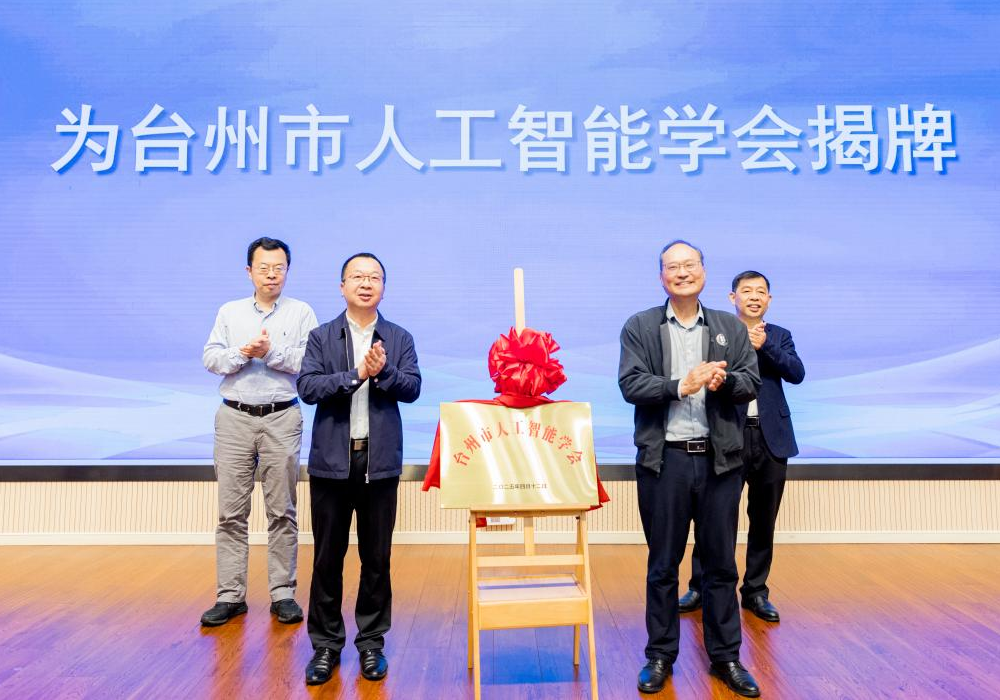
Han Deman and Yu Hongbiao unveil the plaque for the Taizhou Artificial Intelligence Society
Eleven well-known domestic experts and scholars attended the forum, including Xu Changsheng, a National Distinguished Young Scholar, a National High-Level Talent, and a researcher from the Institute of Automation of the Chinese Academy of Sciences; Lu Ke, a National High-Level Talent and a Distinguished Professor from the University of Chinese Academy of Sciences; Jiang Shuqiang, a National Distinguished Young Scholar and a Distinguished Professor from the University of Chinese Academy of Sciences; Yang Yi, a National Distinguished Expert and a Qiushi Chair Professor from Zhejiang University; Chen Xun, a “Chang Jiang Scholar” Distinguished Professor of the Ministry of Education and a professor from the University of Science and Technology of China; Yu Jun, a National Distinguished Young Scholar and a professor from Harbin Institute of Technology (Shenzhen); Wang Yaowei, a “Chang Jiang Scholar” Distinguished Professor of the Ministry of Education, a researcher from Peng Cheng Laboratory, and a professor from Harbin Institute of Technology (Shenzhen); Dong Weisheng, a “Chang Jiang Scholar” Distinguished Professor of the Ministry of Education and a professor from Xidian University; Bao Bingkun, a National Distinguished Young Scholar and a professor from Nanjing University of Posts and Telecommunications; Yu Zhou, a National Outstanding Young Scholar and a professor from Hangzhou Dianzi University; and He Ning, a professor from Beijing Union University.
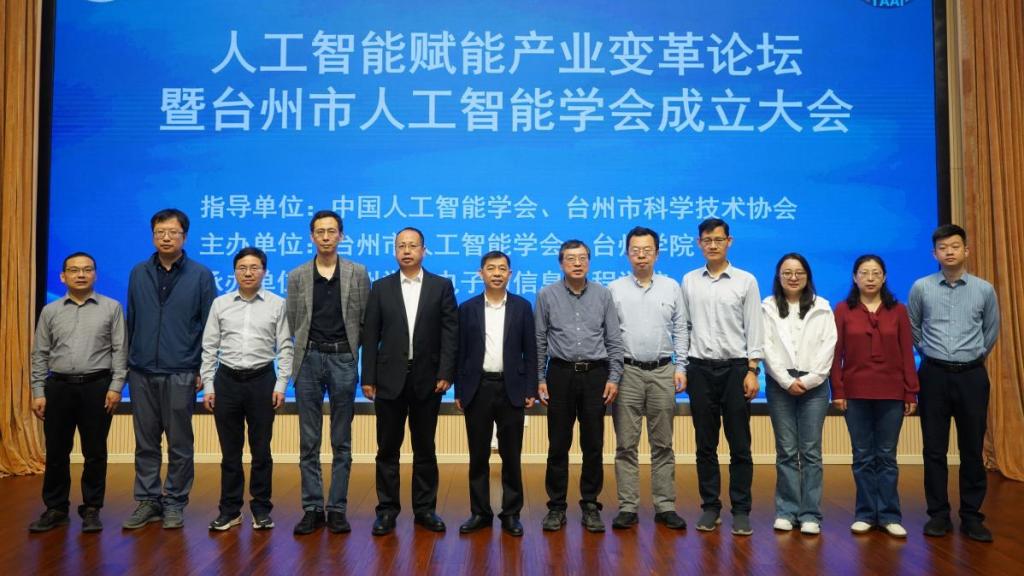
Government leaders, university leaders, and expert guest representatives attend the event
After the opening ceremony, Professor Jiang Shuqiang delivered a keynote speech titled “Visual Navigation Based on Embodied Memory.” The speech first provided an overview of the research background of embodied intelligence, memory, and navigation, focusing on the technological advancements in visual navigation based on embodied memory. Finally, it showcased the adaptation schemes and actual demonstration effects of embodied navigation from virtual to real environments.
Professor Dong Weisheng elaborated on the three technical approaches to enhancing image recognition performance with the theme “Low-Quality Image Recognition in Complex Environments”: pre-processing methods based on quality enhancement, model optimization strategies based on feature enhancement, and robustness improvement schemes based on adversarial learning. He also shared the latest research achievements of his team in this field.
Professor Bao Bingkun expounded on the research progress of “Multimodal Recommendation for Low-Quality Data.” Aiming at the recommendation bias problem caused by data quality, he innovatively proposed a three-stage optimization framework-behavior-guided feature screening, differentiated information extraction, and decoupled reconstruction enhancement. This framework exhibits good architectural compatibility and significant performance improvement effects.
Professor Yu Zhou, taking “Lightweight Multimodal Learning under Resource Constraints” as the theme, shared his team’s research explorations and practical reflections in this field from two technical approaches: “lightweight model design” and “lightweighting of existing models.”
During the dialogue forum between leading experts and enterprise representatives, professors Xu Changsheng, Lu Ke, Yang Yi, Chen Xun, and enterprise representatives including Xu Hailong, Chairman of Taizhou Aixin Intelligent Technology Co., Ltd.; Chen Biao, Deputy General Manager of Taizhou Urban Investment Group Co., Ltd.; and Chen Xiaohuang, Information Director of Zhejiang Crystal-Optech Co., Ltd., conducted in-depth discussions on how AI can empower the innovative development of Taizhou’s manufacturing, smart city, and medical and health fields. They also put forward constructive suggestions on issues such as talent cultivation, industry-university-research cooperation, and technology implementation.
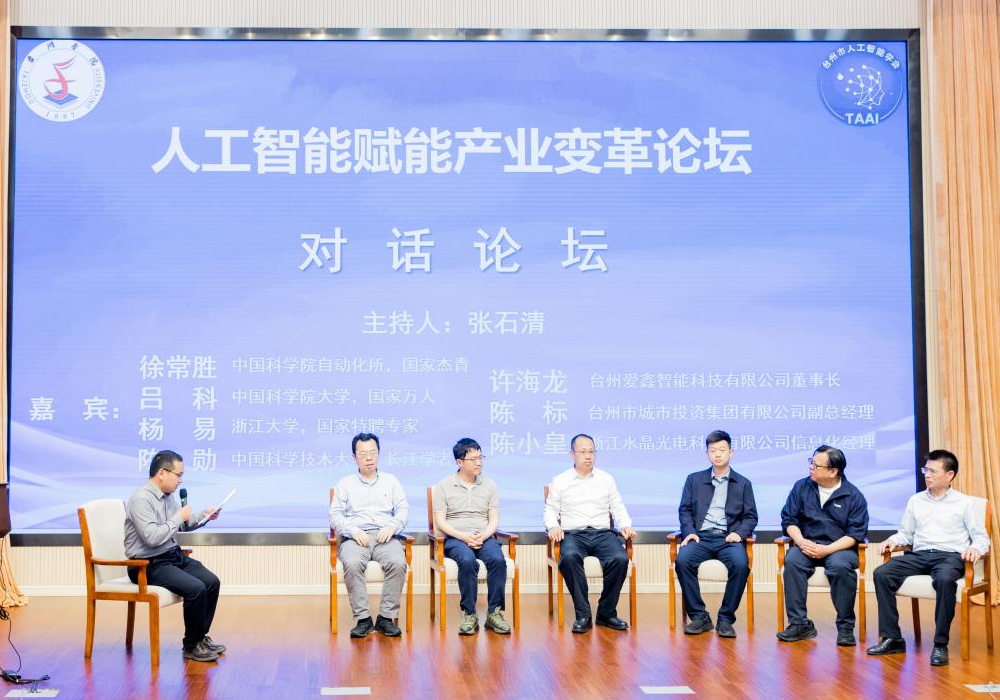
Dialogue forum between leading experts and enterprise representatives
On the afternoon of April 12th, a seminar on intelligent wireless sensing technology and industrial applications was held in Room 711 of the Science and Technology Complex Building. Four scholars, including Li Xue, a professor from the University of Queensland in Australia; Kan Yu, an associate professor from La Trobe University; Zhang Yanjun, an assistant professor from the University of Technology Sydney; and S M Hasan Mahmud, an associate professor from Daffodil International University in Bangladesh, delivered theme reports titled “Emerging Applications and Architectures in AI-enabled Internet of Things (AIIOT),” “Large Language Models and Edge AI in Intelligent Manufacturing: Significance and Future Trends,” “Privacy and Security in Machine Learning,” and “Understanding Machine Learning with Noisy Labels: Challenges, Techniques, and Solutions,” respectively, focusing on issues such as new architectures of AI-powered IoT, large language models empowering manufacturing, privacy protection in machine learning, and noisy labels.
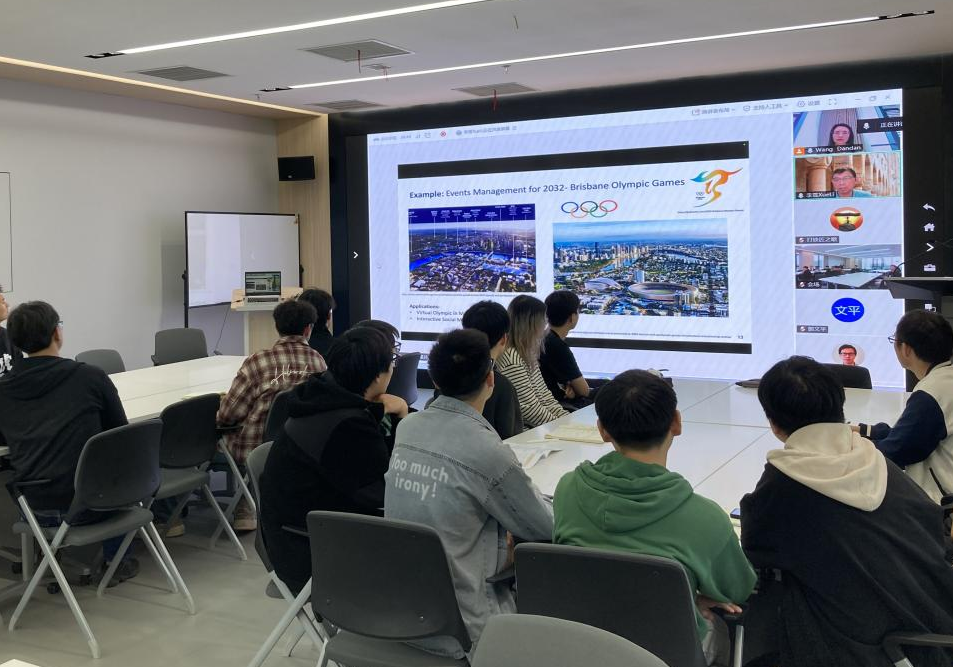
Seminar on Intelligent Wireless Sensing Technology and Industrial Applications
The successful holding of this event has built an important platform for AI technology research, industrial integration, and talent cultivation in Taizhou. In the future, Taizhou Artificial Intelligence Society will take “serving the local area, linking industries, and empowering innovation” as its mission, further promoting academic exchanges, technology transfer, and talent introduction and cultivation. It will facilitate the deep integration of AI technology with Taizhou’s real economy, injecting new impetus into Taizhou’s construction of a “digital powerhouse” and high-quality development.